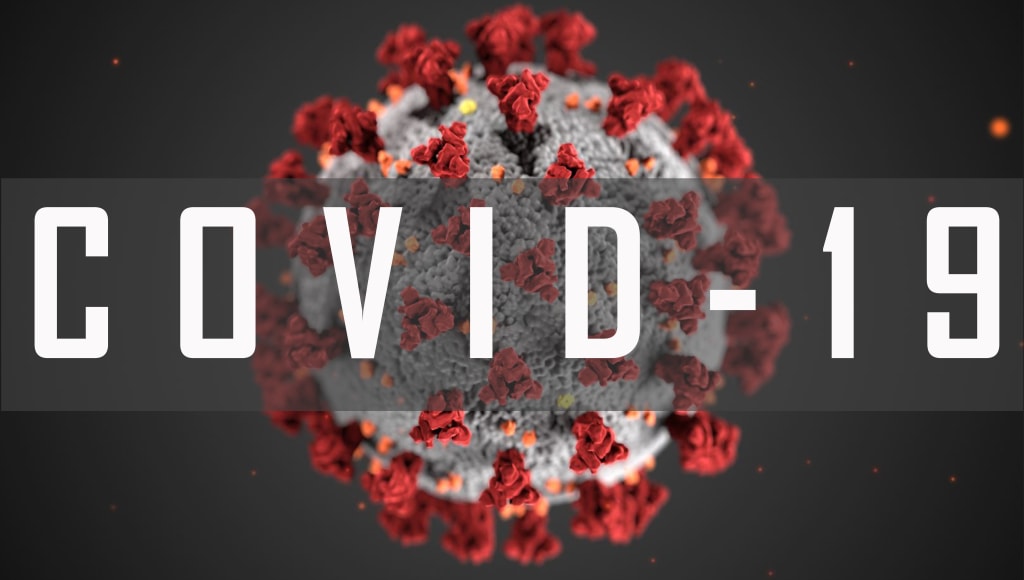
In December 2019, the coronavirus disease 2019 (COVID-19) broke out in China.1 It was declared a global pandemic by the World Health Organization (WHO) in March 2020.2 The high infectivity rate forced the governments to take strict actions in socioeconomic measures such as confinement, suspension of business operations, and reallocation of resources. Virtual ways of communication appeared reasonable alternative channels offering contactless media and meeting social distancing requirements. Online solutions were heavily present in education and health care.
Surgical specialties, including orthopedics, had to decrease their surgical practice and work outside their surgical specialties to help control overwhelming situation.3 Elective orthopedic surgery was suspended. The workload was decreased to minimize the virus spread and reallocate resources in healthcare personal, medical equipment, and beds.4 In Europe, there was a significant drop in arthroplasty and arthroscopy procedures.5,6 As a result of “stay at home” policy, a relative decline was noticed in trauma-related orthopedic surgeries during the pandemic.7 The impact of COVID-19 went beyond surgeons and patients and reached orthopedic trainees who suffered from limited clinical and surgical exposure and cancellation of most of the scientific meetings.8 There was a huge shift in the educational process of residents from problem-based learning into web-based learning methods.9 Some authors highlighted a similar issue in other surgical specialties.10,11
Major interruption in orthopedic residency training program has occurred during the COVID-19 pandemic. The authors hypothesized possible negative impact on the overall trainees’ level and intended to test that issue and provide useful insight. There is a relative lack of information in our region about the impact of COVID-19 pandemic on the orthopedic residents and the changes in clinical rotations and academic activities. Our study aimed to focus on the experience of the orthopedic residents in Saudi Arabia during COVID-19 and the changes happened since pandemic beginning until this survey conduction in July 2021 in terms of mental health, academic performance, and clinical practice training.
Methods
The study proposal was approved by the institutional board review at King Saud University (reference number 21/0489/IRB). A country-wide cross-sectional study was conducted using an online anonymous survey emailed to the orthopedic in-training residents enrolled in the Saudi Commission for Health Specialties at the time of the study.
The inclusion criteria included having current valid registration in the Saudi orthopedic in-training residency program during the COVID-19 pandemic period. All orthopedic residents who completed training before the pandemic were excluded as well as those whose training was on-hold for any reason. The study period was from July 2021 to August 2021. All respondents agreed to participate in the informed consent section preceding the survey. No participant identifiers were collected, and the identity of participants remained anonymous throughout the study. The survey was sent by email to 386 orthopedic in-training residents. The questionnaire used in the present study was originally developed and validated by Barik and coworkers.12 The original authors permitted re-use of the questionnaire in our study. The questionnaire is comprised of 3 main sections concerning academic activity, mental health, and clinical activity. The academic activity questions were categorized into 3 subsections about online, research, and examination activities. The mental health questions were directed to assess the cognitive, affective, and psychomotor aspects. Its focus was to explore the personal time experience in isolation or quarantine, coping with non-orthopedic duties, managing individual’s time and socializing with others. The section of clinical activities was designed to cover the ordinary work tasks in the settings of operating theater, inpatient, outpatient, and emergency. The given answers were based on Likert scale consisting of 5 levels of difficulty (1 very difficult, 2 difficult, 3 same, 4 easy, 5 very easy). The participants were instructed to select a single appropriate response relative to the ordinary situation prior to the pandemic. Also, the survey contained relevant questions related to age, workplace, experience of treating COVID-19 patients, knowledge about precautions, history of quarantine, getting tested for COVID-19, and being COVID-19 positive. Descriptive statistics were presented in the form of mean with standard deviation for normally distributed numerical variables and median with interquartile range for non-normally distributed variables, while numbers and percentages are used for the categorical variables. The statistical analysis was performed using Microsoft Excel software.
Results
Total of 144 responses were collected with response rate of 37%. The responders were 108 (75%) male subjects while 36 (25%) were females. The participating residents were distributed over the residency levels; 30 level 1 (20.8%), 48 level 2 (33.3%), 30 level 3 (20.8%), 18 level 4 (12.5%), and 18 level 5 (12.5%). Mean age of the study sample was 28.7 ± 5.67. Fifty-four (37.5%) residents had work assignments in COVID-19 isolated areas during the pandemic. One-hundred twenty orthopedic residents (83.3%) have treated patients with COVID-19. Thirty residents (20.8%) had positive COVID-19 tests. Eighty-four (58.3%) residents were quarantined due to exposure to COVID-19 patients.
About the Creator
Enjoyed the story? Support the Creator.
Subscribe for free to receive all their stories in your feed. You could also pledge your support or give them a one-off tip, letting them know you appreciate their work.





Comments
There are no comments for this story
Be the first to respond and start the conversation.